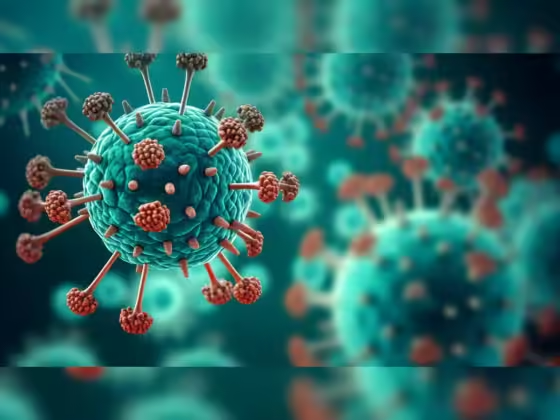A study published in The Lancet , has found that Covid-19 infection may cause long-lasting damage to our brain. The study has found that “neurological symptoms were present in 55% COVID-19 patients even after the three months of the infection.
In the study, MRI scans were used to compare heads of two groups: in the first group were people never infected with Covid-19. Covid-19 infected people were clubbed in the second group.
In the study 60 COVID-19 patients, and 39 non-covid people were recruited.
On comparing head MRIs of the Covid-19 patients with those not infected by the virus, the researchers noted structural changes relating to loss of smell and memory in the recovered patients.
The study titled ‘Cerebral Micro-Structural Changes in COVID-19 Patients – An MRI-based 3-month Follow-up’, revealed possible disruption to micro-structural and functional brain integrity in the recovery stages of COVID-19, suggesting the long-term consequences of SARS-CoV-2.
The study also noted that “Even if the patients recover well from the pneumonia condition, the neurological changes may cause a great burden.”
The study found that during SARS-CoV-2 infection, 41/60 (68.33%) patients had neurological symptoms including mood change (25, 41.67%), fatigue (16, 26.67%), headache (15, 25.00%), vision change (13, 21.67%), myalgia (9, 15.00%), impaired mobility (7, 11.67%), memory loss (8, 13.33%), taste loss (4, 6.67%), limb numbness (4, 6.67%), tremor (4, 6.67%), smell loss (2, 3.33%) and hearing loss(1, 1.67%).
Other common symptoms included fever (53/60, 88.33%), cough (34/60, 56.67%), and gastrointestinal discomfort (8/60, 13.33%). At this follow-up visit, 33/60 (55%) patients still had neurological symptoms
Researchers searched PubMed and the China National Knowledge Infrastructure database for articles published up to June 10, 2020, using the keywords “COVID-19”, “SARS-CoV-2”, and “neurological”, “DTI”, and “brain”. A total of 29 case reports/series reports and 106 reviews, among which 8 were systematic reviews, about the neurological findings in the central nervous system.
After analysing these reports, the researchers found possible disruption to micro-structural and functional brain integrity in the recovery stages of COVID-19, suggesting neuro-invasion potential of SARS-CoV-2.
According to the researchers, this requires attention since even if the patients recover well from the pneumonia condition, the neurological changes may cause a great burden. More research in the mechanism and route of neuro-invasion of SARS-CoV-2 is expected.








